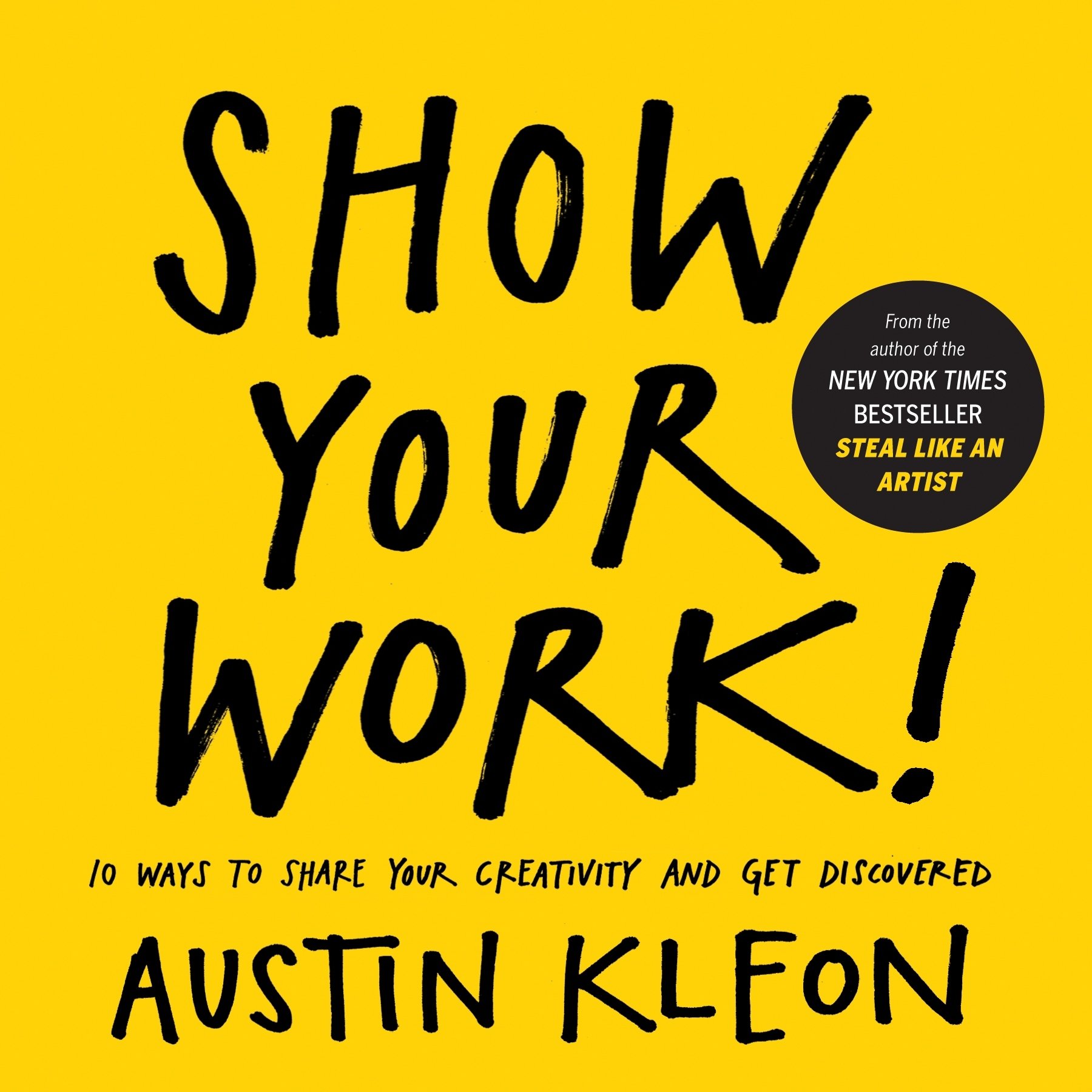How you could enhance your creative mind with this book (Show Your Work! By Austin Kleon)
Read this book back in August and decided to write down some of the stuff I've learned from it. The concepts mentioned in this book are surprisingly fresh, original (to me at least), if not avant-garde. My creative mind has been nourished, never knew I needed this until I have read it.
Since Seneca once said: "There is no delight in owning anything unshared", I'm going to summarize and quote parts of the book I've found interesting, hope you'll benefit from this, even if it's just a little :)

⑴ Scenius by Brian Eno: a model where great ideas are created by a group of creative individuals (artists, thinkers etc.) who make up an "ecology of talent". He explains that good work almost always isn't created in a vacuum and it does not matter that much if you are not a so-called genius. The ideas that we share, the quality of the connections we make and the conversations that we start are stuff that we can contribute to a scenius, it's even easier now because of the Internet.
We can stop asking what others can do for us, and start asking what we can do for others.
⑵ Retain an amateur's spirit. Amateurs have little to lose, are not afraid to make mistakes or look ridiculous in public, they know contributing something is better than contributing nothing and are lifelong learners. He elaborates about how being an amateur is not something to be ashamed of and we should totally learn to be an amateur in some way, willing to try anything, learn from mistakes, and not be afraid about how others might perceive us.
They're in love, so they don't hesitate to do work that others think of as silly or just plain stupid. "The stupidest possible creative act is still a creative act," writes Clay Shirky.
⑶ My personal favourite chapter: 'Work doesn't speak for itself'. It highlights the fact that human beings love stories behind things and shines light on how stories are able to greatly affect the way someone values a certain object. It's definitely not something novel but it reminds me how impactful a good story can be.
"Because, rarified exceptions aside, our audience is a human one, and humans want to connect. Personal stories can make the complex more tangible, spark associations, and offer entry into things that might otherwise leave one cold."

⑷ In the chapter "You can't find your voice if you don't use it", the author encourages us to put our stuff online. An inspiring story of a late film critic that turned mute because of his illness was featured. The disabled film critic proceeded to pour himself into his work online (as if it were a matter of life and death) which subsequently amassed tons of readers.
It sounds a little extreme, but in this day and age, if your work isn't online, it doesn't exist. We all have the opportunity to use our voices, to have our say, but so many of us are wasting it. If you want people to know what you do and the things you care about, you have to share.

Any comments or feedback (or you just want to connect) can be sent here.